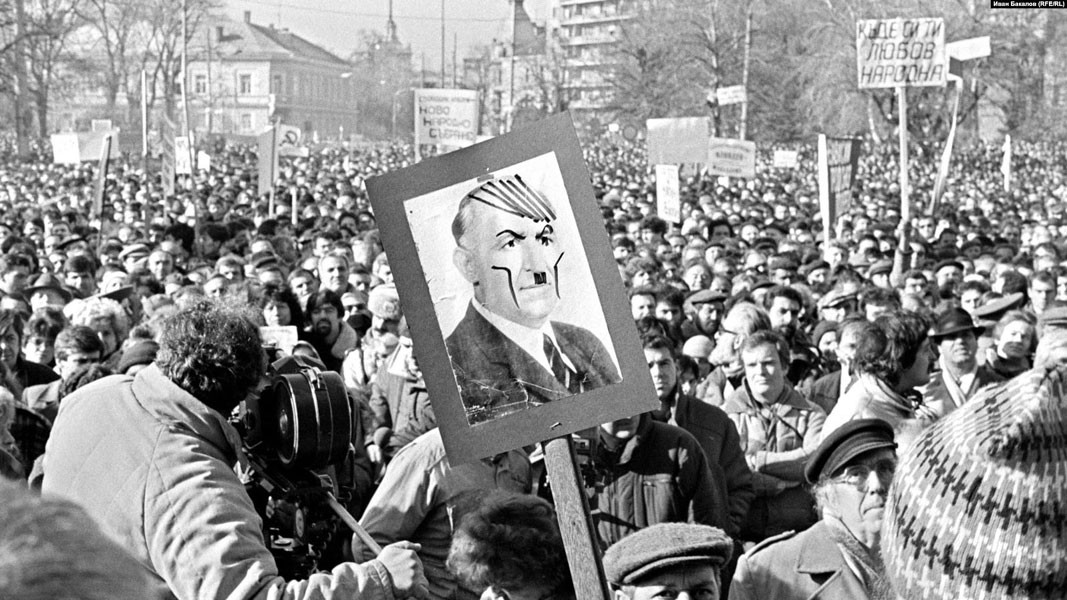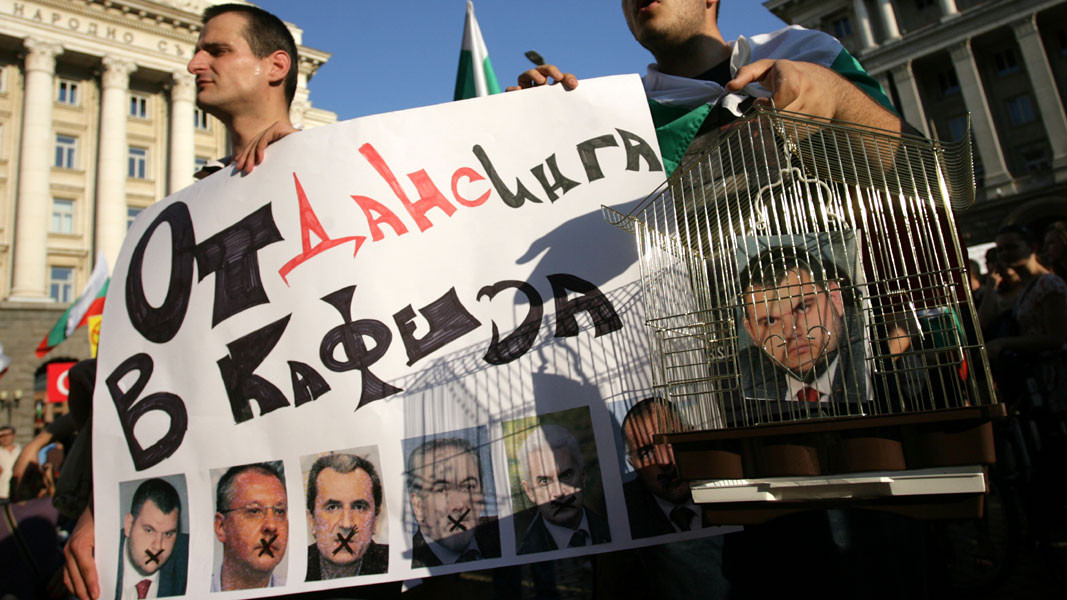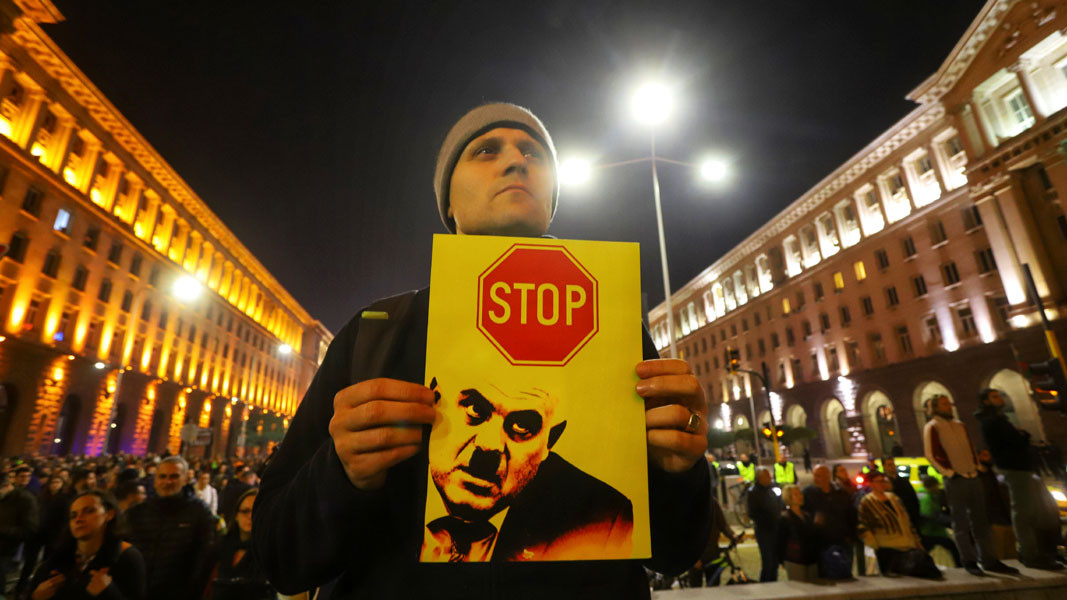November 10, 1989, began as an ordinary day for the citizens of the People’s Republic of Bulgaria, but the subsequent events made it an important historical date connected with the beginning of the transition period from socialism to democracy. Contemporaries to those events tell that in the midst of the perestroika (the political program for reformation within the Communist Party of the Soviet Union) the Russian newspapers were very popular in the countries of the former socialist bloc. Bright citizens learned on a daily basis about the political reshuffles in Poland, Hungary and Czechoslovakia. The German Democratic Republic was also facing changes. The question asked in Bulgaria was when and how the changes in this country will take place. The Bulgarian national TV and radio stations were informing about the start of the Plenum of the Bulgarian Communist Party from the early morning of November 10. Later, the news about the resignation of the party’s longtime General Secretary Todor Zhivkov was the beginning of the long-awaited change.

Three decades later, the Bulgarians are not convinced that they have achieved the long-desired democracy. The period we call transition ended long time ago, political scientist Parvan Simeonov told Radio Bulgaria and added:
We shifted from a planned to a market economy, from the East to the West, from a controlled system to a liberal democracy. These transitions already took place. We live in democracy, there is a free and liberalized market and we are already members of the EU and NATO. The agenda of this country has changed. Today, other issues and problems require fast solution. Unfortunately, most people are not satisfied with the results of the transition period. We are constantly witnessing public discontent. The politicians come and go. However, they also changed over the years and became more professional. In the beginning, there was plenty of enthusiasm and almost everyone in this country wanted to become a politician. Now, the ordinary people do not want to be engaged in politics and for better or worse, an almost professional political stratum has formed.

The messages of the voters towards the politicians have also changed over the years, political analyst Dimitar Petrov said and added:
In the first years of the transition to democracy, we came across and dealt with some words whose meaning was not that clear. We had to explain the terms democracy, pluralism, restitution, privatization, etc. Today, thirty years later, both the political class and the society has bigger experience and understands politics better. Of course, it does not necessarily mean that we are wiser with regard to the current challenges.
People have made different interpretation and assessments of what happened on November 10, 1989. That is why the political analyst made an interesting comparison how this assessment changed over the years:
In the first months after November 10, 1989, I had the feeling that most people in Bulgaria were like fish out of water. Many people were waiting for this moment to come, but some people never though these changes would occur. However, no one knew what was next, including the external factors, which were trying to advise us how to build our democracy and market economy. The first decade after the fall of communism coincided with the recovery after the big economic collapse called Videnov Winter (the winter of hyperinflation in Bulgaria, when the cabinet of Premier Jean Videnov ruled the country). At the end of 1999, the living standard in Bulgaria was much higher and the poverty seemed to be left in the past, but the long-awaited European future was still far away. Twenty years after November 10, 1989, the people focused mainly on the freedom they did not have before the fall of communism. Today, it is pointless to make quantitative comparisons, because it is obvious that we now live much better than in the socialist period. The true comparison should be qualitative. Until 1989, and in the first years after, we were a crushed nation full with complexes. Today, we are much more confident and we can say that we have fulfilled to some extent the legacy of Vasil Levski to be equal to the other European nations – not only on the political table in Brussels, but in terms of living standard and perspectives. We do not truly appreciate the achievements we have made in the past 30 years. Indeed, we have achieved a lot in a relatively short historical period of time. However, may people still think that the transition period in Bulgaria was a failure.

Dimitar Petrov shared with us his pessimistic theory that in 30 years' time a new Iron Curtain may occur, but this time Bulgaria may be on its better side. However, this may not happen, if the Western European countries change their attitude towards the demographic crisis and migration.
English version: Kostadin Atanasov
Bulgaria has been a member of the EU since 1 January 2007. However, Bulgaria had representatives in the European Parliament before its official membership. In 2005, the National Assembly elected 18 Bulgarian MPs who had the status of Euro observers...
Today is election day in Bulgaria, with voting for 17 Bulgarian members of the 720-seat European Parliament and for 240 members of the future 50 th National Assembly of Bulgaria. 32 political formations are taking part in the election race – 20..
Mickovski has a mandate to form government in North Macedonia VMRO-DPMNE leader Hristijan Mickovski has a mandate until June 24 to present to the parliament the composition and program of the new government of North..

+359 2 9336 661
